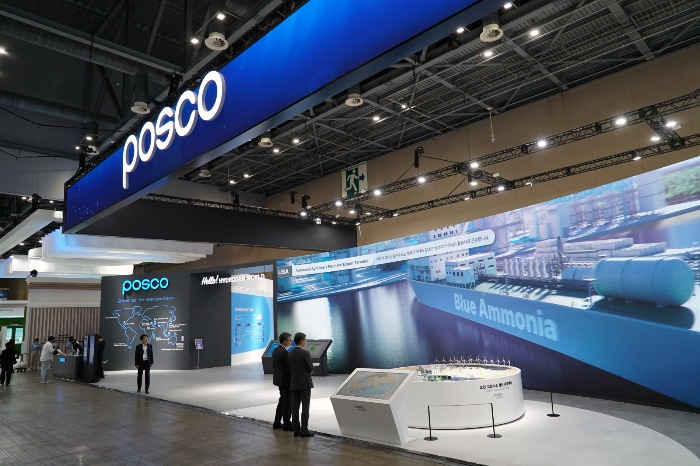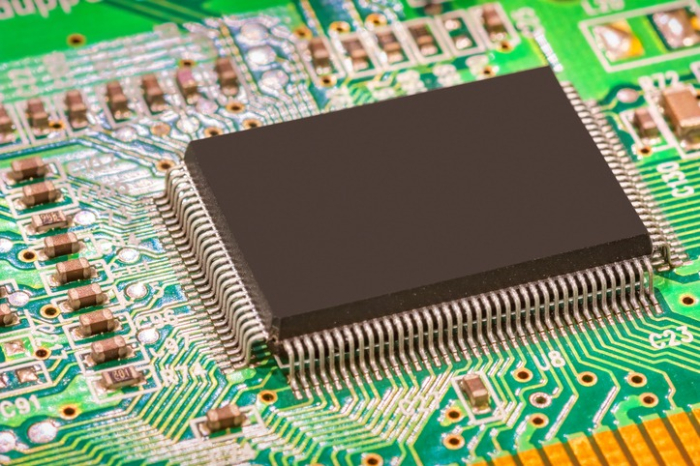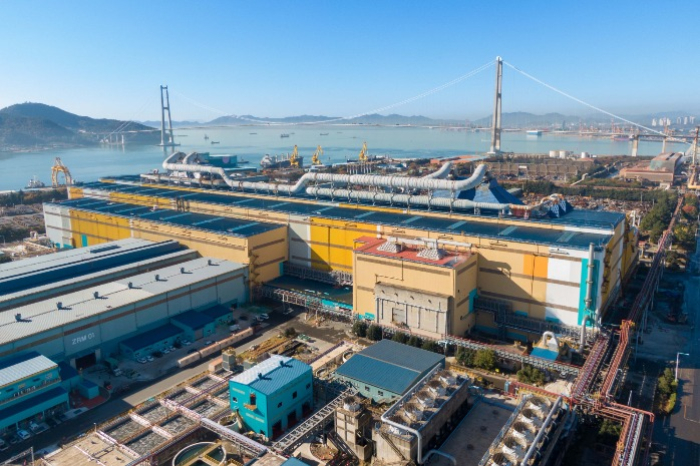Korean chipmakers
POSCO to foster rare gas business with Zhongtai Cryogenic
The JV will produce 130,000 Nm3 worth of highly purified rare gases, to meet over 50% of rare gas demand in Korea
By Dec 27, 2023 (Gmt+09:00)
2
Min read
Most Read
Hankook Tire buys $1 bn Hanon Systems stake from Hahn & Co.


NPS to hike risky asset purchases under simplified allocation system


Osstem to buy BrazilŌĆÖs No. 3 dental implant maker Implacil


UAE to invest up to $1 bn in S.Korean ventures


US multifamily market challenges create investment opportunities



POSCO Holdings Inc. will build a highly purified rare gas-producing joint venture in South Korea with Zhongtai Cryogenic Technology Corp. from China to expand its rare gas business to meet growing demand for rare gases from the booming semiconductor industry.
The Korean steel giant announced on Wednesday that it inked a deal on Friday last week with Zhongtai Cryogenic to set up a JV in Korea that will churn out 130,000 normal cubic meters (Nm3) worth of highly purified rare gases every year.
This would be enough to cover about 52% of total rare gas demand from the Korean semiconductor industry, the company said.
Rare gases are a group of chemically inert gases found in extremely low concentrations in ambient air, and highly purified rare gases ŌĆō mainly 99.999% pure neon (Ne), krypton (Kr) and xenon (Xe) ŌĆō and are widely used in manufacturing processes of various industries including semiconductors, such as annealing, lithography, plasma etching and chemical vapor deposition.
Considering that Korean chipmakers heavily rely on rare gas imports from the US, China and Ukraine due to the lack of local rare gas suppliers, the POSCO-Zhongtai Cryogenic JV is expected to stabilize highly purified rare gas supply in Korea.

Korea is home to the worldŌĆÖs two largest memory chip producers, Samsung Electronics Co. and SK Hynix Inc.
Zhongtai Cryogenic specializes in developing and manufacturing cryogenic equipment used in processing rare gases, such as gas purification, liquefaction and air separation facilities.
POSCO Holdings has been producing crude neon since January last year and plans to supply crude krypton and xenon from 2024 in phases.
GROWING DEMAND FOR RARE GASES
Under the term, POSCO Holdings will supply crude rare gases to the highly purified rare gas-producing JV, while Zhongtai Cryogenic will provide the equipment and technologies needed to process highly purified rare gases from the crude gases.
Especially, the Chinese partnerŌĆÖs air separation technology is crucial to obtaining the highly purified rare gases.
They plan to break ground on the JV plant in Gwangyang, South Jeolla Province next year and begin commercial production at the plant at the end of 2025.

POSCO Holdings will own a 75.1% stake in the JV and Zhongtai Cryogenic the remaining 24.9%. They didnŌĆÖt disclose the financial terms.
POSCO Group companies already run various facilities in Gwangyang, including integrated steel mills and various lithium-ion battery materials-producing plants.
KoreaŌĆÖs No. 1 steel juggernaut is actively diversifying its business portfolio by adding a battery materials-producing business.
Its rare gas business is also expected to enjoy a boon from the thriving semiconductor sector.
Demand for semiconductors is increasing from across the board, including consumer electronics, automotive, industrial automation and healthcare, driving the demand for rare gases.
POSCO will invest 4.4 trillion won to turn Gwangyang, which is already home to its integrated steelworks, into a hub for its new, non-steel growth engines, such as battery materials and hydrogen.
The rare gas JV will be built on the site.
Write to Mi-Sun Kang at misunny@hankyung.com
Sookyung Seo edited this article.
More to Read
-
 BatteriesPOSCO develops EV battery material for lithium extraction
BatteriesPOSCO develops EV battery material for lithium extractionDec 14, 2023 (Gmt+09:00)
1 Min read -

-
 BatteriesPOSCO sharply lifts 2030 battery materials sales targets
BatteriesPOSCO sharply lifts 2030 battery materials sales targetsJul 11, 2023 (Gmt+09:00)
4 Min read -
 SteelPOSCO gears up for big stride as green materials firm with Hyper NO
SteelPOSCO gears up for big stride as green materials firm with Hyper NOJul 06, 2023 (Gmt+09:00)
3 Min read -

-
 Hydrogen economyPOSCO Int'l to build 1.26 mn tons of green hydrogen infrastructure by 2035
Hydrogen economyPOSCO Int'l to build 1.26 mn tons of green hydrogen infrastructure by 2035Jul 07, 2023 (Gmt+09:00)
1 Min read -
 SteelPOSCO to spend $92 bn by 2030 to boost eco-friendly business
SteelPOSCO to spend $92 bn by 2030 to boost eco-friendly businessJul 03, 2023 (Gmt+09:00)
2 Min read
Comment 0
LOG IN


